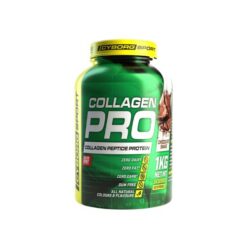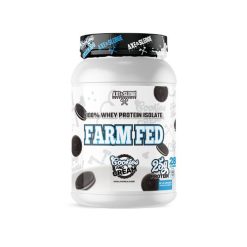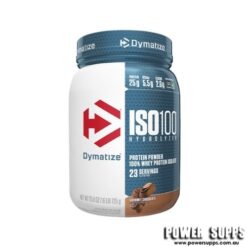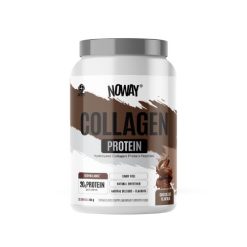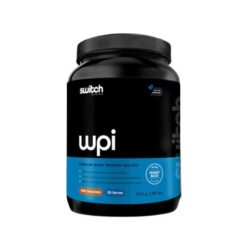If you are diabetic, you know that finding the right foods to eat can be a challenge. That’s why so many people with diabetes are turning to protein powder as a way to help manage their condition. Diabetic protein powder is a great way to make sure you are getting enough protein in your diet, while also keeping your blood sugar levels under control.
Chocolate Honeycomb Protein Powder
Banana Protein Powder
Banana Protein Powder
Diabetic Protein Powder
What Is Diabetic Protein Powder?
Diabetic protein powder is a dietary supplement created specifically for people with diabetes. Protein powder is a popular choice for many athletes and bodybuilders as it helps to build muscle mass, but it can also be beneficial for people with diabetes. There is an unsweetened protein powder, sugar-free protein powder, and plant-based protein powder available for people with diabetes. The best protein powder for those who have diabetes are the ones that contain branched chain amino acids for better health and wellness outcomes.
When you have diabetes, your body has difficulty processing sugar, which can lead to high blood sugar levels. Diabetic protein powder can help to regulate blood sugar levels by providing a slow release of sugar into the bloodstream. This can help to prevent spikes in blood sugar levels, which can be dangerous for people with diabetes.
Diabetic protein powder is usually made from whey protein, which is a type of protein that is easy for the body to digest. Diabetic protein powder can also be made from other types of protein, such as soy protein or casein protein.
Diabetic protein powder is available in a variety of flavors, so you can choose the one that best suits your taste. Diabetic protein powder can be mixed with water or milk and drunk as a shake, or it can be added to smoothies or yogurt.
Our Best Diabetic Protein Powders
1. JDN 100% WPI
In today’s fast-paced world, it’s more important than ever to look and feel your best. JD Nutraceuticals PCT Plus is here to help. PCT Plus contains elements that monitor the testosterone-estrogen balance and, most notably, supports estrogen being broken down into a useful form for the body. In this way, estrogen isn’t cut off entirely but is rather reduced; helping with symptoms like sore joints and low libido. PCT Plus is a safe and effective way to help keep your hormones balanced, so you can look and feel your best.
2. WPI Switch
JD Nutraceuticals 100% WPI is not only one of the cleanest WPIs, but it’s also easy to mix and digest while still containing a high amount of protein. With less than 1g of carbs or fat per serving, this WPI is perfect for anyone looking for an amazing-tasting shake that won’t weigh them down. Our product comes in seven delicious flavors that you will surely love. JD Nutraceuticals 100% WPI is an excellent choice for those who are looking to keep their calorie intake low, but still want to enjoy a delicious whey protein shake. The high quality of the protein and the lack of carbohydrates and fats makes it a nutritious and filling choice that is sure to satisfy your cravings.
3. ON Gold Standard Isolate
Optimum Nutrition’s Gold Standard 100% Whey is one of the world’s most popular proteins for a good reason – it is top-quality. ON is one of the leading producers of high-quality supplements, and their whey protein isolate does not disappoint. Why consume any old whey protein supplement when you can have Gold Standard Isolate? Not only does it mix wonderfully, making your protein shakes go down easily, but it also comes in four delicious flavours that you will love. So if you are looking for a great tasting and efficient whey protein isolate, then look no further than ON Gold Standard Isolate.
4. ATP Noway
If you’re looking for a delicious, warm drink to enjoy on cold winter nights, ATP Science’s new protein drink, Noway Hot Chocolate, is the perfect choice. This blend contains no whey protein, which can sometimes cause digestive issues for those who consume it. The protein in this supplement comes from collagen, which is a type of protein that is found in high levels in the human body. Collagen is responsible for building and repairing connective tissues such as tendons and ligaments. If you’re trying to up your protein intake or strengthen ligaments and tendons, consider taking a collagen supplement. Noway Hot Chocolate is not only tasty, but it’s packed with the nutrients you need to help reach your fitness goals!
5. Cyborg Collagen Pro
If you’re looking for an alternative to whey protein, you’ll want to check out Cyborg Sport Collagen Pro. This protein powder is made from HCP (Hydrolysed Collagen Peptides), which means it’s easy to digest and gentle on the gut. It’s also low in fat and carbs, and mixable with juice or cordial for a refreshing change from thicker, milkier proteins. Each scoop contains 25g of protein, and it comes in seven delicious flavours. So if you’re looking for a high-quality protein powder that’s easy on the stomach, give Cyborg Sport Collagen Pro a try. You won’t be disappointed!
6. Dymatize ISO 100
Dymatize ISO-100 is popular among athletes and gym-goers for its high protein content. The formula contains 100% hydrolysed whey protein isolate, which is easily absorbed by the body. Hydrolysed protein is synthesised to be faster-digesting than other protein sources, making it ideal for post-workout muscle recovery. Dymatize’s five-step purification process results in a pure hydrolysed protein that is low in fat and lactose. ISO-100 is available in 13 different flavours, all of which are well-received by consumers. Thanks to its quality ingredients and great taste, Dymatize ISO-100 has become one of the most popular protein powders on the market.
Can Diabetics Use Protein Powder?
If you have diabetes, you may think that protein powder is off-limits. However, there are a few things to consider before using protein powder as a diabetic.
First and foremost, check with your doctor or dietitian to see if protein powder is right for you. While protein powder can be beneficial for some diabetics, it may not be right for everyone.
If you have diabetes, you need to be especially careful about the types of protein powder you use. Some protein powders are high in sugar and carbs, which can raise your blood sugar levels. Look for protein powders that are low in sugar and carbs, and make sure to read the nutrition label before buying.
Some protein powders are also high in fat, which can be unhealthy for diabetics. Diabetics need to be careful about their overall fat intake, so choose a protein powder that is low in fat.
Does Protein Powder Increase Blood Sugar?
Protein powders are popular among people who are looking to build muscle or lose weight. They’re also a convenient way to get extra protein into your diet. But if you have diabetes, you might be wondering if protein powder is safe for you.
Protein doesn’t raise blood sugar levels the way carbohydrates do. However, if you use protein powder as a meal replacement or add it to your regular diet, it could contribute to weight gain. That’s because protein contains calories, and gaining weight can lead to higher blood sugar levels.
If you have diabetes and want to use protein powder, talk to your doctor first. They can help you determine if protein powder is safe for you and how much you should use.
Protein powder can be a healthy addition to your diet, but it’s important to monitor your blood sugar levels closely if you have diabetes.
What Are the Benefits of Protein Powders in General?
Protein powders are a popular dietary supplement, and there are many different kinds available on the market. They can be made from a variety of sources, including whey, casein, soy, and hemp, and come in many different flavors. Protein powders are often used by athletes and bodybuilders to help them build muscle mass, but they can also be beneficial for people who are trying to lose weight.
Protein powders can help you lose weight by increasing your metabolism and helping you feel fuller for longer. They can also help you build muscle mass, which can lead to increased calorie burn. In addition, protein powders can help you recover from workouts more quickly and reduce muscle soreness.
Are There Risks To Consuming Protein Powders?
As with any supplement, there are always some risks associated with consuming protein powders. However, these risks are generally minimal and can be easily avoided by following the manufacturer’s directions.
The most common side effect of protein powder consumption is indigestion. This can usually be avoided by drinking plenty of water and taking the powder with food. Other side effects may include constipation, diarrhea, and flatulence.
Protein powders can also cause dehydration, so it is important to drink plenty of water when taking them. Some protein powders may also contain stimulants such as caffeine, which can cause side effects such as jitteriness, anxiety, and insomnia.
It is also important to note that protein powders are not regulated by the FDA, so there is no guarantee of quality or safety. Be sure to purchase protein powder from a reputable source.
When used properly, protein powders can be a safe and effective way to increase your protein intake. However, as with any supplement, it is important to consult with a healthcare professional before starting any new supplement regimen.

